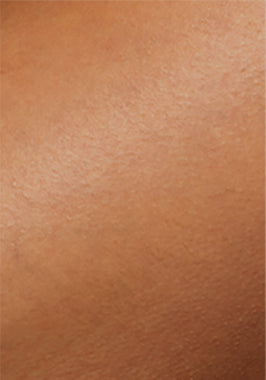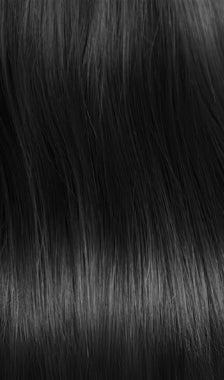Do you sometimes feel like shaving is a tedious part of your skincare routine? Or do you feel like you are forced to get rid of the hair in the areas that require hair removal? Or maybe hair removal is too monotonous and boring for you to stick with.
Almost everyone has felt this way at some point, and you are not alone. Just thinking about the necessary shaving equipment, let alone standing or sitting for minutes to actually shave, is torture.
To put it simply, hair removal is a topic that many people find hard to get used to as it sometimes feels like a herculean task. But thanks to technological advancements, the whole process has become easier.

Now that there are several options available, you no longer have to rack your brains about how to approach hair removal. We can say that the process of hair removal has become so easy and enjoyable. Maybe you are doing something wrong in your hair removal routine and that makes you shy away from anything that has to do with shaving or hair removal . But it doesn't have to be that way, we are here to help you.
To make it clear again, there are several amazing hair removal options that will make the entire hair removal process easier for you.
In this article, we'll address the frequently asked question of whether you should shave before laser hair removal. Before that, however, we'll give an overview of the different types of hair removal that exist and briefly discuss shaving and laser hair removal. We'll also talk about the pros and cons of laser hair removal. The last part of the article will cover what happens if you don't shave before laser hair removal.
methods of hair removal
 Apart from the traditional methods of hair removal, there have been various other hair removal methods that have been used to achieve the same task. Although this age-old practice of hair removal is still very common, technology has helped in simplifying the entire process. Now, one does not have to struggle or go through any kind of stress to get a hair removal treatment.
Apart from the traditional methods of hair removal, there have been various other hair removal methods that have been used to achieve the same task. Although this age-old practice of hair removal is still very common, technology has helped in simplifying the entire process. Now, one does not have to struggle or go through any kind of stress to get a hair removal treatment.
Here are 10 different hair removal methods to choose from: shaving, waxing, plucking , electrolysis , laser, epilators, chemical depilatories, intense pulsed light (IPL) and hair removal creams. Even better, there is a special option that allows you to remove hair long-term, so you don't have to worry about hair removal every other day.
These hair removal methods all have their advantages and disadvantages, and each has its side effects. You have to find a method that suits your hair type and skin sensitivity. Of the methods listed, two will be examined in more detail in this article: the shaving method and the laser hair removal method.
Shave
 In the method of hair removal by shaving, the hair is removed using a razor or some kind of blade. There are two types of shaving instruments, the razor and the electric razor.
In the method of hair removal by shaving, the hair is removed using a razor or some kind of blade. There are two types of shaving instruments, the razor and the electric razor.
However, the most common instrument is the razor. One could attribute its use to its availability. In any store, one can buy a razor in the skin care products section. In addition, its light weight and ease of use make it a first choice for most people.
While there is no specific time to shave, we recommend shaving immediately after showering. This is because the skin pores are moisturized and dilated and blood flow to the skin is optimal, making hair removal easier and smoother. However, if you want to shave at other times of the day that don't include showering, consider a form of shaving called wet shaving to make the process easier.
On the other hand, not everyone likes the idea of having wet skin before shaving, so if you fall into that category, there is an option for you too - dry shaving. Overall, one needs to consider a few other factors before deciding on the type of shaving one wants to use for their hair removal routine.
laser hair removal
 Like any other type of hair removal, the main goal of laser hair removal is to get rid of unwanted hair on different areas of the body such as the face, chin, upper lip, armpits, back, bikini line and legs. The laser light focuses a specific amount of light rays (also called lasers) to eliminate unwanted hair.
Like any other type of hair removal, the main goal of laser hair removal is to get rid of unwanted hair on different areas of the body such as the face, chin, upper lip, armpits, back, bikini line and legs. The laser light focuses a specific amount of light rays (also called lasers) to eliminate unwanted hair.
In laser hair removal, the light emitted by the laser is absorbed by the pigment present in the hair (melanin). This light energy is now converted and transformed into another form of energy, namely heat, which then affects and damages the hair follicles, the tubular sacs in the skin (hair follicles) responsible for the production of hair. The result of the damage is seen in the inhibition or delay of hair growth.
Although this inhibition of hair growth is only temporary, it is comfortable and very effective, especially for people who do not like to shave frequently. If you need a long-term solution, you will need to schedule multiple laser hair removal appointments. In addition, you may need to schedule maintenance treatments in addition to the laser treatment.
Although laser hair removal is suitable for all skin types, it is especially recommended for fair-skinned people with dark hair. Please note that you should consider your skin and hair color before considering this hair removal method. If you have dark skin or are unsure of which category you fall into, you should consult a dermatologist to know which treatment plan is right for you. In case you are considering this hair removal option, here are some tips and advice:
Do's and Don'ts of Laser Hair Removal
Do's of Laser Hair Removal
 Typically, the doctor will advise you to avoid using sunscreens that can tan your skin and recommend that you use a skin lightening or bleaching cream (if you are not already using it) to avoid any skin tanning before the procedure. In fact, laser hair removal is best suited for fair skin because the laser beam can penetrate skin with a lower concentration of melanin more easily than skin with a higher concentration.
Typically, the doctor will advise you to avoid using sunscreens that can tan your skin and recommend that you use a skin lightening or bleaching cream (if you are not already using it) to avoid any skin tanning before the procedure. In fact, laser hair removal is best suited for fair skin because the laser beam can penetrate skin with a lower concentration of melanin more easily than skin with a higher concentration.
It is recommended to apply sunscreen daily to prevent the sun's rays from coming into contact with your skin. When purchasing a sunscreen, make sure it is a broad spectrum sunscreen with an SPF of 30 or higher. Sunscreen should be applied before and after the procedure and used continuously for at least 6 weeks to protect the skin.
This is a controversial aspect that this article will address in the next section, but many studies suggest that trimming and/or shaving before laser treatment is helpful as it helps remove surface hair that can cause skin damage due to burnt hair.
Don'ts of Laser Hair Removal
The tricky thing about laser hair removal is that some studies suggest that one should trim or shave before the laser procedure. However, these are just a few ways of removing hair. We would like to point out that certain methods of hair removal such as waxing, plucking and electrolysis, which can disrupt the hair follicle, should be avoided. Try to avoid these hair removal methods for at least 30 days before your laser procedure.
Some types of medications, including aspirin and some anti-inflammatory drugs, promote blood clots, which can disrupt hair follicles and cause problems during the procedure. Therefore, you should check with your doctor about what type of medications you should avoid before undergoing the procedure.
Before, during and after laser treatment, you should avoid sunlight on your skin (if possible) to reduce sunburn or tanning. This will allow the treatment to penetrate the skin more easily and destroy the hair follicles that produce hair.
Now that we have explained the two main methods of hair removal, let's answer the big question of whether you should shave before laser hair removal.
Should you shave before laser hair removal?
 The question of whether or not to shave before laser hair removal treatment is controversial. However, it is mandatory to shave at least 24 hours before laser hair removal. This is because when the pigment in the hair absorbs the laser beam, the resulting heat penetrates through the hair into the follicles. Shaved hair therefore allows for effective laser treatment without burns after the treatment.
The question of whether or not to shave before laser hair removal treatment is controversial. However, it is mandatory to shave at least 24 hours before laser hair removal. This is because when the pigment in the hair absorbs the laser beam, the resulting heat penetrates through the hair into the follicles. Shaved hair therefore allows for effective laser treatment without burns after the treatment.
When it comes to shaving, it's important to shave many hours, such as 24 to 48 hours, before your laser hair removal appointment. This is because shaving exposes the layers of skin as the hair is removed. So if you shave too close to your laser appointment, you're at a higher risk of making the whole procedure ineffective or even getting a blood infection if you cut yourself while shaving. Shaving at least 24 hours before the procedure (and avoiding dry shaving) will help prevent accidental cuts, bruises, or tiny razor marks, and if there are any, the skin will have time to heal before the laser treatment.
What happens if you don't shave before hair removal?
Before you decide not to shave before your laser hair removal appointment, the following happens: The unshaven hair on the surface of your skin absorbs the heat energy that should be penetrating the hair follicle under your skin and burns your hair. These burns, in turn, leave scars and marks on the skin.
If you dry shave before the procedure, your skin may be prone to increased sensitivity and irritation. In extreme cases, adverse reactions may occur and the skin will be very sensitive during the laser procedure.
Conclusion
Laser hair removal is a highly recommended method of hair removal, provided you have the money for it and follow the instructions that come with it. However, if this procedure is too expensive or uncomfortable for you, you should look into other hair removal options that may be best for you. Remember that getting rid of unwanted hair is important for healthy skin, so choose the best hair removal method.





























